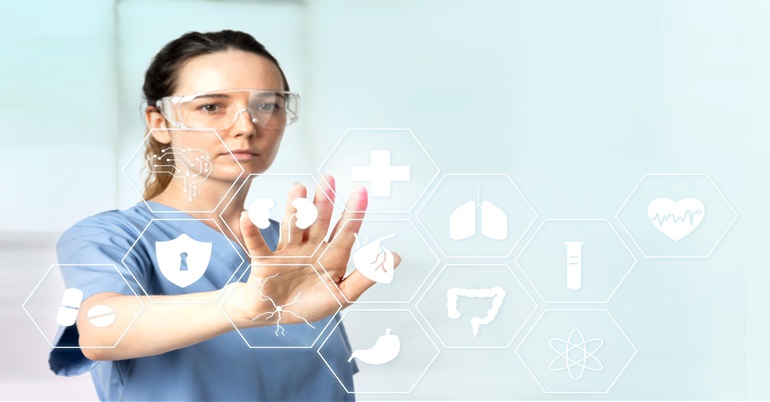Welcome to AMIEE Association
Healthcare Innovations

The integration of Artificial Intelligence (AI) and Machine Learning (ML) in healthcare is revolutionizing the industry by driving significant advancements in various aspects of patient care and medical research. AI and ML technologies are transforming the landscape of healthcare by enabling predictive diagnostics, enhancing personalized treatment plans, and improving access to basic healthcare for all. These innovations are not only increasing the efficiency and accuracy of medical practices but are also ensuring that quality healthcare becomes more accessible and equitable.
Artificial Intelligence and Machine Learning are not just enhancing healthcare—they are democratizing it, making quality medical services more accessible and personalized than ever before.
One of the most profound impacts of AI and ML in healthcare is in predictive diagnostics. AI algorithms can analyze vast amounts of medical data, including patient histories, genetic information, and even lifestyle factors, to predict the likelihood of diseases before they manifest. For example, AI-driven tools can identify early signs of cancer, cardiovascular diseases, and other chronic conditions with remarkable accuracy. This predictive capability allows healthcare providers to intervene early, offering preventive measures and treatment options that can significantly improve patient outcomes.
-
AI algorithms analyze vast medical data for early disease detection, improving patient outcomes.
-
Personalized treatment plans created by AI ensure more effective and tailored therapies.
-
AI-powered telemedicine platforms provide access to healthcare in remote and underserved areas.
-
Ethical considerations, including data privacy and algorithmic transparency, are crucial for responsible AI implementation in healthcare.
Another critical area where AI and ML are making a substantial difference is in the personalization of treatment plans. By leveraging data from various sources, including electronic health records, genomics, and patient monitoring devices, AI systems can tailor treatment plans to the unique needs of each individual. This personalized approach ensures that patients receive the most effective therapies based on their specific health conditions and genetic makeup, reducing the trial-and-error approach often associated with traditional treatments. As a result, patients experience better outcomes and fewer side effects, enhancing the overall quality of care.
Furthermore, AI and ML are playing a pivotal role in expanding access to basic healthcare services, especially in underserved and remote areas. AI-powered telemedicine platforms and virtual health assistants are breaking down geographical barriers, providing patients with timely medical consultations and advice regardless of their location. These technologies are particularly beneficial in regions with limited healthcare infrastructure, ensuring that more people can access essential medical services and information. AI-driven applications can also assist in triaging patients, prioritizing those who need urgent care and optimizing resource allocation in healthcare facilities.




Leave A Reply